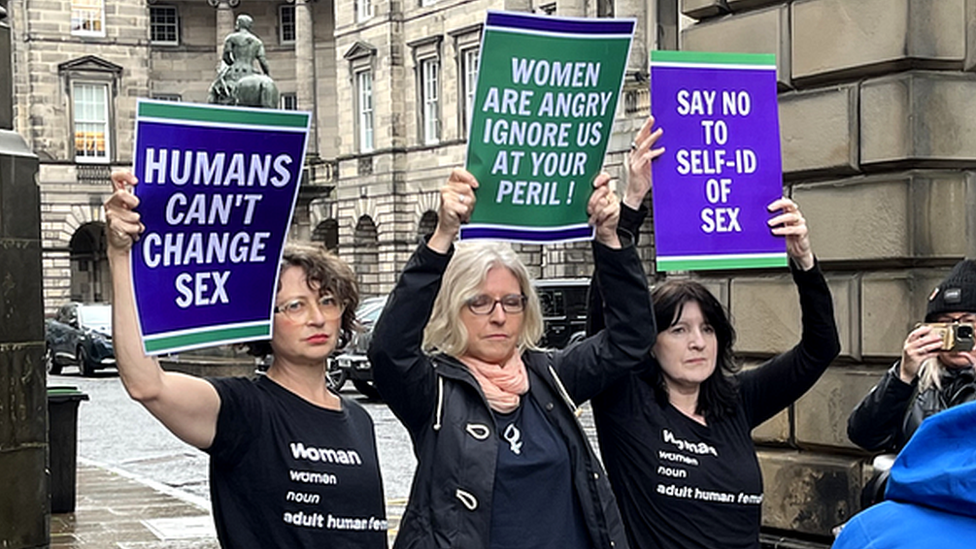Healthcare to be improved for trans people - Shona Robison
- Published
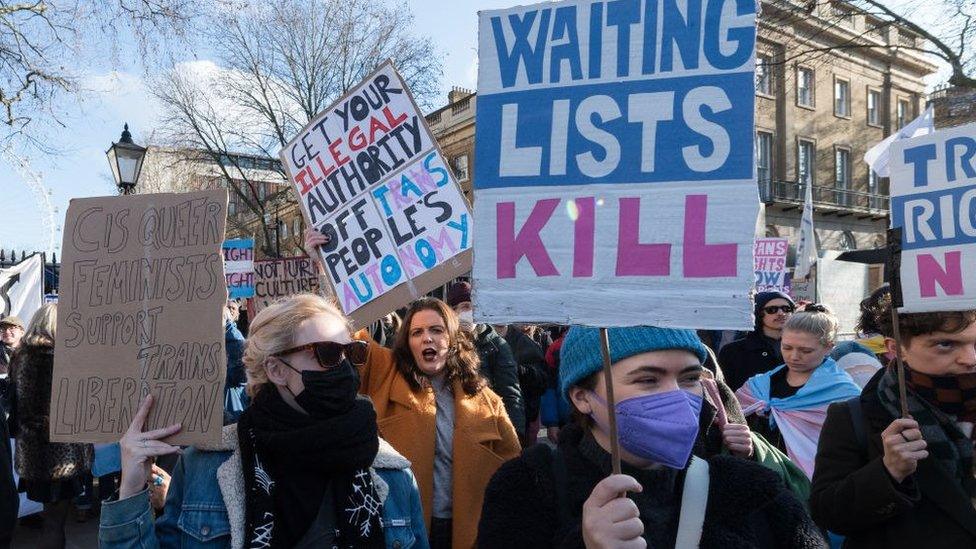
A protest outside Downing Street in January against the UK government's decision to block gender reform in Scotland
The Scottish government is looking at new ways to help transgender people after confirming it will scrap an appeal of the UK government's veto of gender reform.
The Court of Session ruled that the UK government's use of Section 35 of the Scotland Act had been lawful.
Deputy First Minister Shona Robison has told the BBC they will now look at reforming transgender healthcare.
A statement setting out next steps will be made at Holyrood on Wednesday.
Speaking on the Good Morning Scotland programme, Ms Robison defended the Scottish government's handling of the Gender Recognition Reform (GRR) Bill, saying they had listened to all of the arguments on the issue.
"It was clearly a polarising debate. Fundamentally at the heart of it was trying to make the lives of trans people just that bit better," she said.
"But we are where we are and what we are determined to do is to look at the other areas of life, the health care system for example. That's the number one ask from the trans community, to make that better for them and those are the areas that we will focus on."
The Scottish Parliament passed legislation making it easier for people to change their legally-recognised sex last year.
It was then blocked by the UK government from becoming law, as they argued that it would have an impact on equality laws across Great Britain.
Scottish Secretary Alister Jack previously urged the Scottish government to avoid any further action.
The Court of Session in Edinburgh rejected a Scottish government legal challenge to the veto earlier this month, leading ministers to consider a further appeal to the Supreme Court in London.
Mr Jack claimed such a move would be a waste of taxpayers' money and cost "the thick end of £2m".
The legislation received cross-party support in Holyrood, passing by 86 votes to 39 after a highly-charged debate.
Supporters for the reforms have argued it would make the process of obtaining a gender recognition certificate (GRC) easier and less traumatic for trans people.
Campaigners against the legislation claim the legislation could risk the safety of women and girls in same-sex spaces such as hospital wards and refuges.
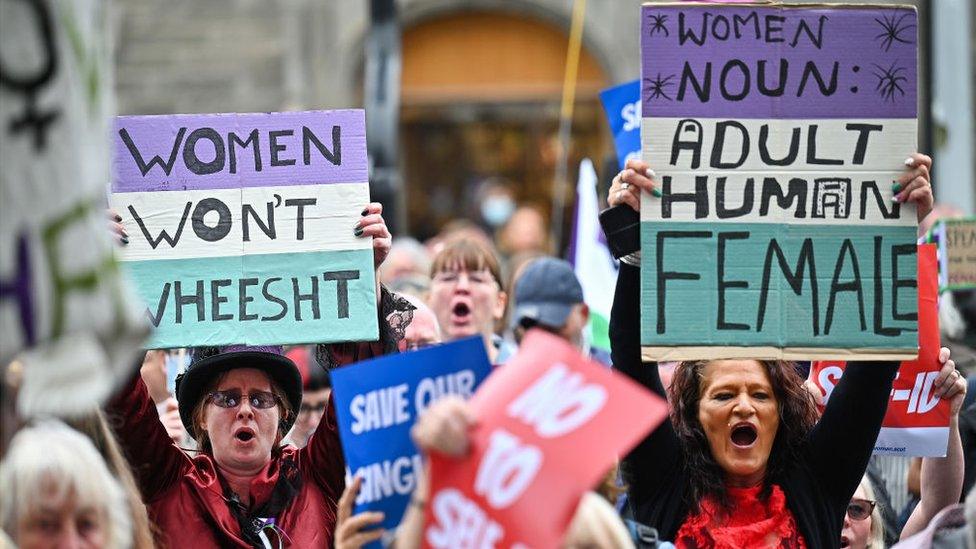
Campaigners have held rallies outside the Scottish Parliament about the reforms
Ms Robison, who as social justice secretary led the GRR bill through the Scottish parliament, defended the Scottish government against claims it had not listened to women's concerns.
"I have never said that any of the concerns raised are not truly held and I met with a number of women's organisations and heard their concerns," she said.
"What I set out though is that during the course of the bill I don't think there was any evidence to show that trying to make the lives of trans people that bit better in a way that many other countries across the world have done was going to impact on women and girls.
"I want to try and support the trans community to try to reduce some of the toxicity that we have seen that has made their lives even more difficult and I think by looking and focusing on things like transgender health care and other areas that we can do that," she added.
Party division
First Minister Humza Yousaf called the Court of Session ruling a "dark day for devolution" and added the ruling showed that devolution was "fundamentally flawed."
Mr Yousaf decided to proceed with the legal challenge shortly after succeeding Nicola Sturgeon - a passionate supporter of trans rights - as first minister in March.
The issue has proved divisive for the Scottish government, and the other candidates for the party leadership earlier this year - Kate Forbes and Ash Regan - were both opposed to the legislation.
Ms Forbes stated after the Court of Session ruling that the government should not appeal the case any further.
Ross Greer, of the Scottish Greens, said the ruling was "a bitter, bitter disappointment".
He also told BBC Radio Scotland's Drivetime programme that it showed devolution "can be overruled and vetoed by a UK secretary of state from a party that Scotland didn't actually want."
Mr Greer added that he would expect the Scottish government to always act in the best interests of the trans community, a community he said had been "horribly vilified" recently.
It is understood the Scottish government will continue to consider alternative ways forward despite the decision not to appeal.
The Scottish government has been approached for comment.
Related topics
- Published8 December 2023
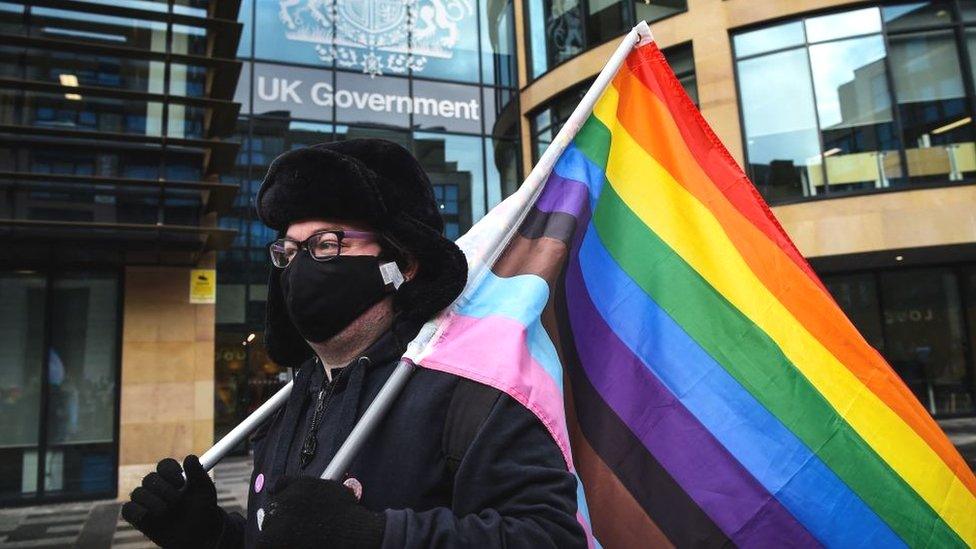
- Published8 December 2023
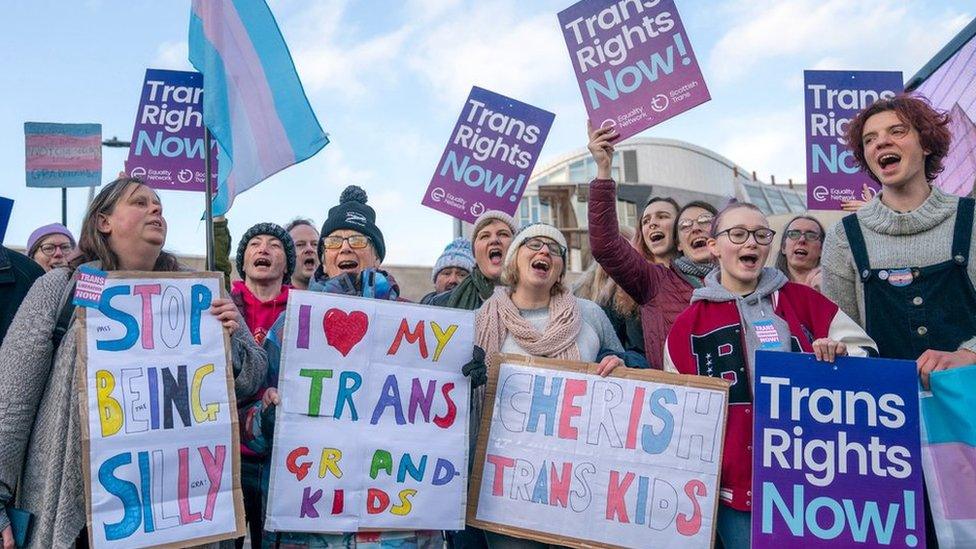
- Published19 September 2023
